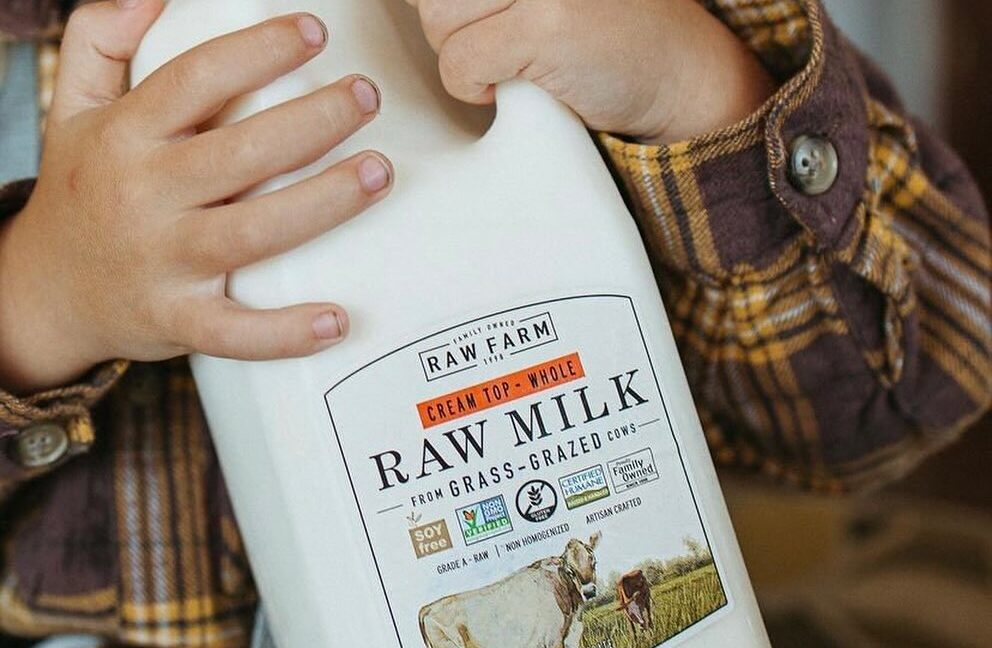- Posted On:2024-12-03 07:12
-
657 Views
Raw milk producer optimistic after being shut down for bird flu detection
Bird flu has landed on a California farm that shuns virus-killing pasteurization, leading to a second recall of raw milk and a suspension of operations at the company, Raw Farm in Fresno County.
According to a November 27 alert by the California health department, officials in Santa Clara County found evidence of bird flu virus in retail samples of a batch of Raw Farm's milk, which has been recalled. It is the second time that retail testing has turned up positive results for the company and spurred a recall. The first contaminated batch was reported on November 24. The two recalled batches are those with lot codes 20241109 ("Best By" date of November 27, 2024) and 20241119 (Best By date of December 7, 2024).
In an email to Ars on Monday, Raw Farm CEO Mark McAfee said that none of the company's cows are visibly sick but that it appears that asymptomatic cows are shedding the avian influenza virus.
After the first recall, a representative for Raw Farm said in a video posted to its YouTube account that the risk of bird flu was "not a big deal." In the email on Monday, McAfee seemed to suggest the same.
Risky arguments
McAfee shared documents arguing that bird flu-contaminated raw milk does not pose a risk. One document was said to contain responses from "ChatGBT" that suggested that bioactive components of raw milk could inactivate influenza viruses. However, the chatbot responses also noted that "inactivation of flu viruses in raw milk specifically hasn’t been extensively studied" and raw milk "carries a risk of bacterial contamination."
Multiple studies have found that raw milk from cows infected with bird flu can contain high levels of the live, infectious virus.
The testing on Raw Farm's milk so far involved PCR (polymerase chain reaction), a test that detects genetic fragments of the virus. PCR tests can't determine if the genetic fragments are from live viruses or dead ones. McAfee insists that the tests were picking up an inactivated virus. Tests that detect infectious viruses are now being done, and results are expected in the coming days.
"We are shut down due to testing results showing DEAD VIRUS PIECES in some of our samples. Nothing alive," McAfee said, despite the fact that testing for live virus is still pending. "We are testing and will have more data soon," he added.
Another document McAfee sent was an assessment from Margaret E. (Peg) Coleman, a microbiologist and raw milk advocate, who argues, among other things, that there is a lack of evidence of milk-borne transmission of bird flu viruses, specifically high pathogenic avian influenza viruses (HPAI). That includes H5N1, an HPAI that is currently causing an unprecedented nationwide outbreak in US dairy cattle.
Human infections
On this point, Coleman isn't wrong. The outbreak of H5N1, which was declared in March, is the first time an HPAI has been detected in US cows. And the outbreak has been like no other seen anywhere in the world before. As such, there are many questions and unknowns about the risk the dairy outbreak poses to humans, including whether people can be infected with the virus by drinking high levels of it in milk.
To date, no human infections have been linked to Raw Farm's raw milk.
However, real-world evidence from H5N1 infections in dairy workers strongly indicates that people can become infected from milk. To date, at least 34 dairy workers in the US have developed H5N1 infections after working with infected cows. The workers' infections are largely thought to occur via milk, including from having milk splashed in their eyes or touching their faces with milk-contaminated hands. One of the most common symptoms among dairy workers is conjunctivitis, aka pink eye.
In its alert last week, the California health department warned that while pasteurization effectively kills bird flu, raw milk consumers are at risk of the virus, writing:
"Drinking or accidentally inhaling raw milk containing bird flu virus may lead to illness. In addition, touching your eyes, nose, or mouth with unwashed hands after touching raw milk with bird flu virus may also lead to infection. Symptoms of bird flu infection in humans include eye redness or discharge, cough, sore throat, runny or stuffy nose, diarrhea, vomiting, muscle or body aches, headaches, fatigue, trouble breathing and fever. Anyone who has consumed these specific [Raw Farm] products, and is experiencing these symptoms, should immediately contact their health care provider or local health department."
Raw milk’s future
Still, amid the bird flu risk, advocates of raw milk have only fortified their support for the beverage, which has no proven health benefits and carries various infectious disease risks. In his email to Ars, McAfee sent a third document, a "press package," that said the company is optimistic that raw milk will soon become more accepted. (The document also says that SARS-CoV-2, the virus that causes COVID-19, is an influenza virus. That is false. SARS-CoV-2 is a coronavirus.)
According to the document, anti-vaccine advocate Robert F. Kennedy, Jr, whom Trump has picked to be the US health secretary, is a Raw Farm customer. (Kennedy has previously stated he is a raw milk drinker.) Further, Raw Farm says that McAfee "has been asked by the RFK transition team to apply for the position of 'FDA advisor on Raw Milk Policy and Standards Development.'"
"With RFK being appointed to head the [Department of Health and Human Services] ... it is certain that decades old FDA anti-raw-milk policies will shift soon," the Raw Farm document reads. "Raw Farm is the largest producer of raw milk in the world and stands at the battlefront of this transitional event. Our friends in the regulatory community privately share that recent raw milk pressures are intense and immense."

